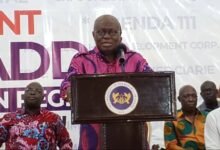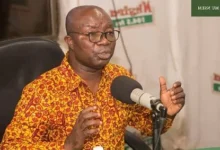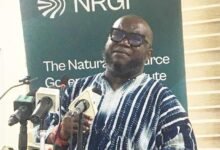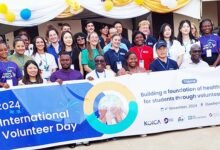Witchcraft accusations: A tool for torture, segregation and lynching of vulnerable people

It has always been the prayer of many people to live life to its fullest—that is to live long. The reason is that nobody controls his or her life. It is only God who determines how long a person can live. It is even more difficult to live long in our part of the world where we are saddled with poor healthcare systems coupled with high levels of poverty. This makes it a rare blessing to live long in our part of the world—some will call it, grace of God.
But in some communities in Ghana, old age comes with a prize. It has become common in some communities in the country to associate old age with witchcraft. Many grannies in their 60s, 70s, 80s, and 90s easily fall in this bracket—the more you live, the higher your chances of being branded a witch.
Because many aged people suffer menopausal tendencies, including dementia, some people erroneously associate persons who exhibit these qualities with witchcraft, hence subjecting them to many inhumane treatments and abuses, including physical and psychological tortures, segregation and lynching. This is because these alleged witches, mostly aged women, are seen as the source of family’s misfortunes and to get rid of their powers over the family, they are manhandled.
Some communities, for instance, have created spaces they call “Witch Camps” to host these alleged witches since they can no longer live under the same roof with their people. These Witch Camps are located far away from the communities.
The notable Witches’ Camps are located at Gambaga; Gnaani; Bonyasi; Kpatinga; Kukuo and Naabuli. Many of these witches’ camps have operated for many centuries. The Gambaga and Gnaani witches’ camps are the most populated.
Considering the many issues of human rights violations that go on in these witches’ camps, many past governments in the country have attempted to close them down but they were not successful. Sadly, many inmates have died in these camps due to torture, hunger, psychological abuse, lack of proper healthcare and physical abuses.
Those accused of witchcraft seize to have any human rights in the hands of their accusers. These witchcraft accusers mostly beat the supposed witch before they are sent to the witches’ camps. They beat them with the hope that they may admit being witches and also confess their atrocities over the families. Many of these alleged witches out of pain from physical abuses (torture) had to confess under duress to witchcraft in order for them not to be beaten again by their accusers, hence forcing their accusers (mostly family members) to send them to the witches’ camps.
Sadly, those who refuse to admit to allegations of witchcraft are severely beaten and starved, with some dying in the process.
One of such cases which went viral in the country was that of the lynching of a 90-year-old Akua Denteh at Kafaba, a community in the East Gonja Municipality of the Savannah Region.
Madam Denteh was beaten to death in a broad daylight at Kafaba near Salaga, a well-known slave market in the 18th and 19th centuries on Thursday, July 23, 2020.
Her death ignited widespread angry reaction across the country, with calls for the arrest and prosecution of the perpetrators.
The Salaga police subsequently arrested seven individuals including the chief of the community, Seidu Yahaya.
Why the lynching?
Reports following Madam Denteh’s death were that a certain fetish priestess declared her the witch, responsible for the burning of the New Patriotic Party’s (NPP) youth shed in the community.
The priestess also accused the old woman for being responsible for the irregular rainfall patterns at the Kafaba community and to get rid of the ‘harm’ she poses to the residents of the community, the priestess recommended Madam Denteh’s lynching.
As illogical and awkward as the reason was, the people in the community believed in the priestess’ advice and therefore carried out the lynching.
When the news got to the President, Nana Akufo-Addo, he expressed his strongest revulsion at the awful killing of the 90-year-old woman over witchcraft allegations.
He said the tragic incident had disfigured Ghana and charged the police to ensure that justice was served.
Vigil
The ActionAid Ghana, an International Non-Governmental Organisation on July 23, 2022 held a vigil in commemoration of the second anniversary of the lynching of Madam Denteh.
The vigil was held to further put pressure on government to bring to book perpetrators of Madam Denteh’s death.
The women’s Rights and Campaigns Manager of ActionAid Ghana, Margaret Brew-Ward, speaking at the vigil advocated for the criminalisation of witch camps in the country.
She also wanted the government to prosecute individuals who operate witch camps, stressing that witch camps are effectively women’s prisons where inmates have been given no trial, have no right of appeal but have received a life sentence.
“We believe the country need to make this practice unattractive by criminalising and prosecuting individuals who perpetuate such human rights abuses,” she noted.
For Madam Brew-Ward, witch camps serve as a platform where women are abused without any justifiable cause.
“Despite the constitution’s protection to all persons in Ghana, there are hundreds of women in the country who are accused of witchcraft and condemned to a life of extreme violence and isolation,” she said.
In addition, she noted, “These women are banished from their homes and forced to live in ‘witch camps’.”
For her, “These witch camps are a cruel manifestation of gender inequality and violence against women in Ghana.”
Madam Brew-Ward said witchcraft accusation is not a tradition, pointing out that Article 26 (2) of the 1992 Constitution states that “all customary practices, which dehumanise or are injurious to the physical and mental well-being of a person, are prohibited.”
That, she noted, it was worrying that in spite of the fact that the country’s constitution frowns on any dehumanising practices, witch camps have been left to operate in some parts of the country, abusing the rights of women, widows and single mothers.
Gender advocate and human rights activist, Josephine Oppong-Yeboah in sharing her views on the issue said, “It is highly unacceptable to associate old age with witchcraft and use witchcraft allegations or accusations to torture or lynch people in that respect. Such things offends human rights of the victims and any civilized society should frown on this, especially in this time and age. No community should entertain this backward practice.”
She said many people have relied on witchcraft accusations to punish innocent aged women they want to get rid of.
For her, the act of labelling someone as a witch should not be encouraged by anybody or any society in Ghana.
“One day, we shall all grow old and in our old age, would we be happy if people brand us witches and send us to these camps to languish there?” she questioned.
Ms. Oppong-Yeboah said Madam Denteh’s death should be the last time someone will be killed in Ghana over witchcraft allegations.
Justice served at last
Even though it took some years, perpetrators of Madam Denteh’s death, were finally brought to book in July, 2023.
The Tamale High Court in July sentenced two persons involved in the lynching of Madam Denteh to 12 years imprisonment.
The convicts are Hajia Serina Mohammed and Latifa Bumaye.
Unlike the case of Madam Denteh, many innocent souls have been wasted due to witchcraft accusations in many parts of the country.
New hope in Ghana
It appears the calls by ActionAid Ghana and other civil society groups for the country to criminalize witchcraft accusations has been heard.
This is because Parliament on Thursday, July 27, 2023, passed the Criminal Offences (Amendment) Bill, which makes it criminal to refer to anyone as a witch in the country.
The Bill explicitly criminalises the practice of witchcraft accusation and proscribes the declaration, accusation, naming or labelling of another person as a witch, and its related matters.
The purpose of the bill is to amend the Criminal Offences Act, 1960 (Act 29), to prohibit the practice by any person as a witch doctor or witch finder.
The Bill was also borne out of the need to deal with attacks and human rights violations arising out of witchcraft accusations in the country.
Commendable
Ms. Oppong-Yeboah lauded the decision by Parliament to criminalise witchcraft accusations.
She explained that lack of knowledge and education had resulted in some vulnerable persons, especially elderly women, some of whom might be suffering from dementia, being intimidated, beaten and sometimes coerced into admitting to being witches and subsequently banished from their communities or even lynched in some cases.
Statistics
In 2021, there was a total of 539 alleged witches in the five prominent Witch Camps in Ghana, namely the Gnaani Camp, Kukuo Camp, Gushegu Camp, Gambaga Camp and Kpatinga Camp.
Out of this number, the females constituted 498, representing 92 per cent and the males were 41. The inmates were all vulnerable persons, consisting of older women, single mothers, widows and unmarried women.
By Benedicta Gyimaah Folley







